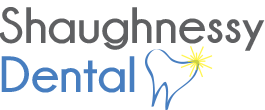Dental Nutrition
Oral Health Guidelines for Pregnant Women
Pregnancy gingivitis is a common form of gum disease known to develop in almost half of all pregnant women likely due to the change in hormones. When kept at-bay, pregnancy gingivitis generally ends shortly after the birth of the child, although it should be monitored by a dentist periodically during pregnancy in order to prevent this form of gingivitis from progressing into more serious periodontitis, an advanced and irreversible form of gum disease that has been linked with preterm birth. Pregnant mothers with periodontal disease are seven times more likely to go into preterm labor. Prostaglandin, a chemical found in oral bacteria, may induce labor. And high levels of prostaglandin has been found in the mouths of women with severe cases of periodontal disease.
The following guidelines were developed by the AAP in response to the growing concern surrounding oral health during pregnancy:
Oral Health Education – Counseling and early intervention by healthcare providers such as physicians, nurses, and dentists to provide expectant mothers with the tools and resources necessary to understand the importance of oral health care during pregnancy.
Oral Hygiene – Removing the bacterial plaque, which researchers have connected to preterm birth and low birth-weight babies, is essential. Using the correct brushing and flossing methods greatly increase the amount of plaque that is removed from the teeth and gums.
Fluoride – The American Dental Association recommends the use of toothpaste with fluoride by persons over the age of six. Echoing their sentiment, the AAP oral health guidelines advise the continued use of fluoridated toothpaste during pregnancy, and recommends the use of an over-the-counter alcohol-free fluoride rinse to help reduce the amount of plaque in the mouth.
Nutrition – Educating expectant mothers about proper diet and nutrition during pregnancy will limit unnecessary sugar intake and in turn, prevent plaque build up.
Treating Existing Tooth Decay – Expectant mothers are encouraged to have existing tooth decay treated during their pregnancy, which experts believe is a completely safe practice during pregnancy. Restoring decayed teeth will help achieve oral health by removing the bacteria associated with tooth decay.
Transmission of Bacteria – Expectant mothers are discouraged from sharing food and utensils in order to prevent the transmission of the bacteria known to cause tooth decay.
Use of Xylitol Gum – Expectant mothers are encouraged to chew xylitol gum (four times a day) as research suggests that chewing this gum may decrease the rate of tooth decay in children.
Talk to Your Dentist
If you are pregnant or are considering pregnancy, discuss any concerns you may have with your dentist. Women who are thinking about becoming pregnant may want to consider their oral health before becoming pregnant as research suggests that treating existing gum disease in pregnant women does not reduce the instance of preterm birth. Despite this fact, experts insist that regular oral health care should continue throughout pregnancy.
Comments are closed


